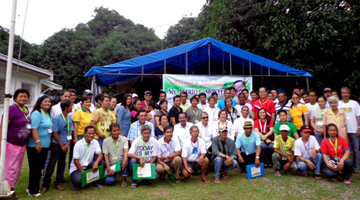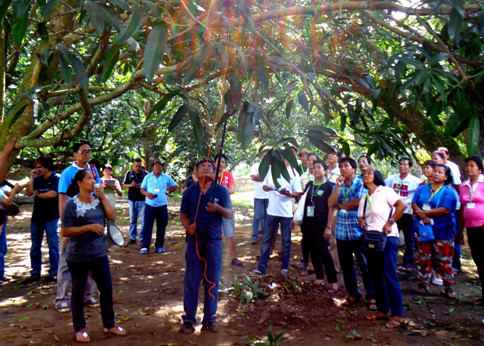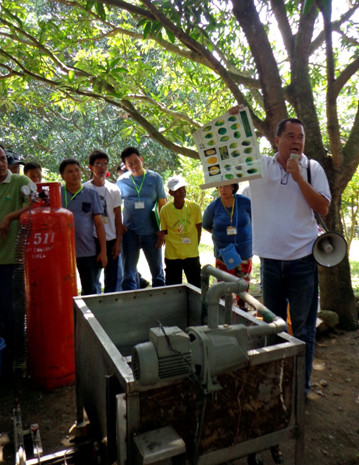 LOS BAÑOS, Laguna, Philippines – After rice, mango is one of the main sources of income in Pulilan. However, due to the infestation of cecid fly and mango twig borers in mango farms in Bulacan and Central Luzon, Pulileños have to bear the burden of 70-100% loss in yield, leaving them in debt and without a form of livelihood.
LOS BAÑOS, Laguna, Philippines – After rice, mango is one of the main sources of income in Pulilan. However, due to the infestation of cecid fly and mango twig borers in mango farms in Bulacan and Central Luzon, Pulileños have to bear the burden of 70-100% loss in yield, leaving them in debt and without a form of livelihood.
To address this challenge, the Department of Science and Technology (DOST), PCAARRD-DOST, in coordination with Bulacan Agricultural State College (BASC), the local government unit of Pulilan, and Ramon Magsaysay Technological University (RMTU) organized a training workshop on mango production and postharvest handling. The training was held in Pulilan, Bulacan on November 4 and 5, 2014.
DOST Secretary Mario G. Montejo in his message said that mango production, in its average yield of four to five tons per hectare per year, can be increased to nine to 11 tons per hectare per year using the appropriate management practices as advocated by several government programs.
Low mango production in Bulacan is primarily caused by poor adoption of good agricultural practices (GAP), integrated crop management (ICM) and postharvest quality management (PQM) which is even exacerbated by the effects of climate change. These poor practices have resulted to unproductive trees and the decrease of the quality of mango produce.
More than 60 mango farmers from barangays in Pulilan, Plaridel, and San Miguel participated in the two-day training workshop.

 Dr. Oscar Opina, mango expert and S&T consultant; Dr. Celia Media, mango cecid fly expert and professor from the University of the Philippines Los Baños (UPLB); Janice Baysa, mango twig borer expert and instructor from the RMTU, and Emmanuel Amatorio, postharvest engineer from UPLB formed part of the training team.
Dr. Oscar Opina, mango expert and S&T consultant; Dr. Celia Media, mango cecid fly expert and professor from the University of the Philippines Los Baños (UPLB); Janice Baysa, mango twig borer expert and instructor from the RMTU, and Emmanuel Amatorio, postharvest engineer from UPLB formed part of the training team.
The training provided the participants with lectures on GAP, ICM, and PQM, as well as their application through demonstrations particularly on pruning, pesticide management, bagging, harvesting, and hot water treatment.
As one of the outputs of the training workshop, the local government of Pulilan organized the mango growers to enhance the sharing of best practices and to facilitate the flow of information from the government. This will sustain government’s efforts towards improving Bulacan’s mango industry.
For his part, Dr. Patricio S. Faylon, PCAARRD executive director said that the training is one way of making the people benefit from the government research investments and that he hoped that the activity could be sustained.
The training workshop on mango is only one of the activities supported by PCAARRD in keeping with the first and foremost of the outcomes committed by DOST: “Science based know-how and tools that enable the agriculture sector to raise productivity to world class standards.”
